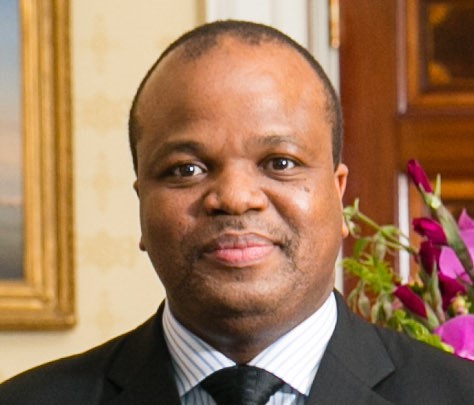UN voices deep concern over reported deaths of protesters in Kingdom of Eswatini

His Majesty King Mswati III, Kingdom of Swaziland has reportedly skipped the country amid protests
The eruption of violence in the Kingdom of Eswatini in recent days is “deeply concerning”, amid reports that dozens of people have been killed or injured during protests calling for democratic reforms, the UN human rights office, OHCHR, said on Tuesday. In a statement later in the day, the UN chief called for “inclusive and meaningful dialogue”, to end the violence.
Unrest first began in the last absolute monarchy in Africa, in May, when students took to the streets to call for accountability for the death of a 25-year-old law student, allegedly at the hands of the police.
In late June, these protests grew into daily pro-democracy marches in several locations around the Kingdom, with protesters voicing deep-seated political and economic grievances, said OHCHR, in the regular briefing for reporters at the UN in Geneva.
Eswatini, formerly known as Swaziland, gained independence 53 years ago, and is ruled by King Mswati III. He chooses the prime minister and cabinet, and has the power to dissolve Parliament.
The Secretary-General António Guterres said he was continuing to follow developments in the Kingdom “with increasing concern”.
“The Secretary-General reiterates his call on all stakeholders to refrain from violence and address their differences through inclusive and meaningful dialogue”, said the statement issued by his Spokesperson.
“The Secretary-General underlines the importance of enabling all Emaswati to exercise their civil and political rights peacefully and urges the security forces to exercise utmost restraint.”
OHCHR Spokesperson Liz Throssell, said her office had received allegations of “disproportionate and unnecessary use of force”, harassment and intimidation by security forces, including the use of live ammunition by police.
She urged the authorities in Eswatini to “fully adhere to human rights principles in restoring calm and the rule of law, in particular the obligation to minimise any use of force.
“We also call on the Government to ensure that there are prompt, transparent, effective, independent and impartial investigations into all allegations of human rights violations”, she added, “including those by law enforcement personnel in the context of the demonstrations, and that those responsible are held to account.”
She reminded authorities that peaceful protests are protected under international human rights law, “including under Article 21 of the International Covenant on Civil and Political Rights, to which the Kingdom of Eswatini is a State Party.”
The OHCHR Spokesperson also expressed concern at reports that Internet services were disrupted last week and called on authorities “to take all steps to ensure that Internet access is not blocked.”
Throssell urged the Government of the Kingdom “to open up a longer-term dialogue to air and address the underlying public concerns that have given rise to these recent protests.
“We remain committed to working with the Government of Eswatini to strengthen human rights promotion and protection, including support and guidance in implementing recommendations by UN human rights mechanisms, including guaranteeing the rights to freedom of expression, of peaceful assembly and to freedom of association, as well as the right of people to participate in the conduct of public affairs.”
The UN chief welcomed efforts being led by the Southern African Development Community (SADC), to find a solution to the current situation. “The United Nations remains committed to working with the Government and the people of Eswatini, and all partners, to ensure a peaceful resolution”, he said – UN







